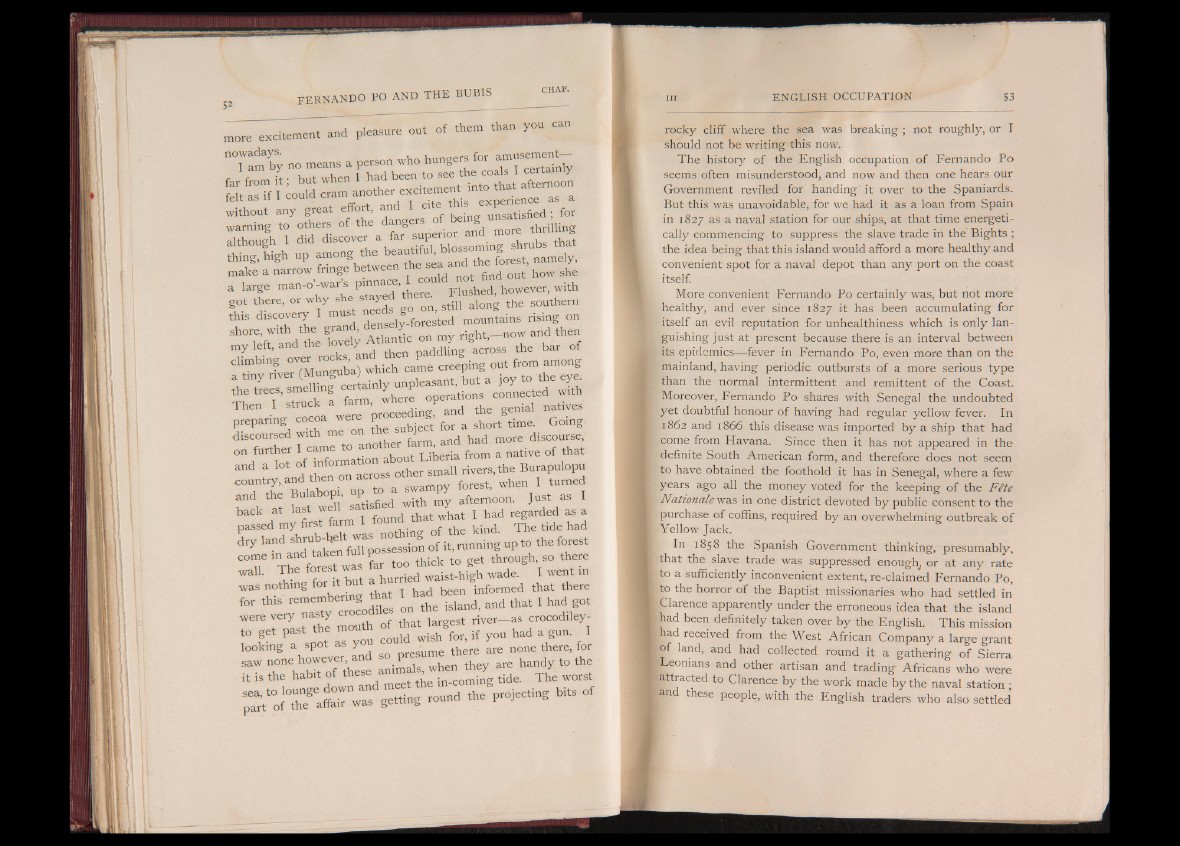
morc excitement and pleasure out of them than you can
" T a m b y no means a person who hungers for
far from i t ; but when I had
felt as if I could cram a n o t h e r ^ &
without any great effort, and ci unsatisfied; for
warning to others of the dangers o g | M H U
although I did discover a far supe shrubs that
thing, high up among the beautdul, blossom - g
make a narrow fringe between P g g j |U f t* how she
a large man-o’-war’s F iushed, however, with
g o t there, or q stU1 along the southern
this discovery I must need g moUntains rising on
shore, with the grand, ens y j „ bt — now and then
m y ,eft, and the lovely A tlan tic on ^ c r o s , the bar o f
c limbing over rocks, an P creeping out from among
discoursed with me on more discourse,
on further I came to another farm, and had M | g o f ^
and a lot of information a rivers, the Burapulopu
and the Bulabopi, up to a swa py j ^ ^ ^ j
back at last well satisfied t wbat I had regarded as a
passed my first farm oun |H Fbe tide had
d ry l a n d o f it, running up to the forest
come m a n d taken iu v tQ through, so there
wall. The ores was ^ waist-high wade. I went in
was nothing o , r b j been informed that there
for this remembering that and that I had got
were very nasty croc° largest river—as crocodileyto
get past the mouth « g g had a gun j
looking a spot as you res'ume there are none there, for
saw none however, and so pr handy to the
it is the habit of these animals, ^ wQrst
*etting round the projecting bits of
rocky cliff where the sea was breaking ; not roughly, or I
should not be writing this now.
The history of the English occupation of Fernando Po
seems often misunderstood, and now and then one hears our
Government reviled for handing' it over to the Spaniards.
But this was unavoidable, for we had it as a loan from Spain
in 1827 as a naval station for our ships, at that time energetically
commencing to suppress the slave trade in the Bights ;
the idea being that this island would afford a more healthy and
convenient spot for a naval depot than any port on the coast
itself.
More convenient Fernando Po certainly was, but not more
healthy, and ever since 1827 it has been accumulating for
itself an evil reputation for unhealthiness which is only languishing
just at present because there is an interval between
its epidemics— fever in Fernando Po, even more than on the
mainland, having periodic outbursts of a more serious type
than the normal intermittent and remittent of the Coast.
Moreover, Fernando Po shares with Senegal the undoubted
yet doubtful honour of having had regular yellow fever. In
1862 and 1866 this disease was imported by a ship that had
come from Havana. Since then it has not appeared in the
definite South American form, and therefore does not seem
to have obtained the foothold it has in Senegal, where a few
years ago all the money voted for the keeping of the Fête
Nationale was in one district devoted by public consent to the
purchase of coffins, required by an overwhelming outbreak o f
Yellow' Jack.
In 1858 the Spanish Government thinking, presumably,
that the slave trade was suppressed enough, or at any rate
to a sufficiently inconvenient extent, re-claimed Fernando Po,
to the horror of the Baptist missionaries who had settled in
jjClarence apparently under the erroneous idea that the island
had been definitely taken over by the English. This mission
|had received from the West African Company a large grant
of land, and had collected round it a gathering of Sierra
Keomans and other artisan and trading Africans who were
attracted to Clarence by the work made by the naval station ;
In these people, with the English traders who also settled